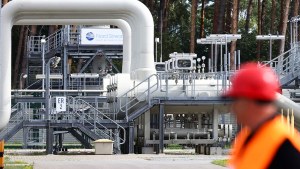The Future of European Energy

The war in Ukraine has shifted public opinion toward energy independence, renewable power, and nuclear energy.
One of the effects of the war in Ukraine has been the widespread energy crisis now hitting Europe. In 2021, Russian gas accounted for 40 percent of imported gas necessary for European industry and household use. Despite the political leverage that Russia had by controlling Europe’s access to gas, most countries have openly condemned Putin’s invasion, and many have restricted or stopped their import of Russian gas, leading them to seeking an alternative energy solution for the winter. This decision has caused shifts in European public opinion surrounding national energy independence, the necessity of nuclear energy, and the state’s response to rising energy prices.
Energy Independence
When Russia closed the Nord Stream-1 gas pipeline in September 2022, it became clear to European leaders that they could no longer rely on Russia for their energy needs. A poll by Eupinions conducted in September 2022 indicates that the European public also sees the merit of being less reliant on outside energy. Two-thirds of European Union citizens (67%) and at least 60 percent of each member state’s public support the EU becoming more energy independent. Nevertheless, support for energy independence has dropped EU-wide to 67 percent, which is down from 72 percent in June and 74 percent in March. One possible cause is the threat of a cold winter and rising energy bills. In some countries, this drop in support has been significant: for example, between March and September, support fell by 12 percentage points in Belgium and 10 in France, Germany, and the Netherlands.
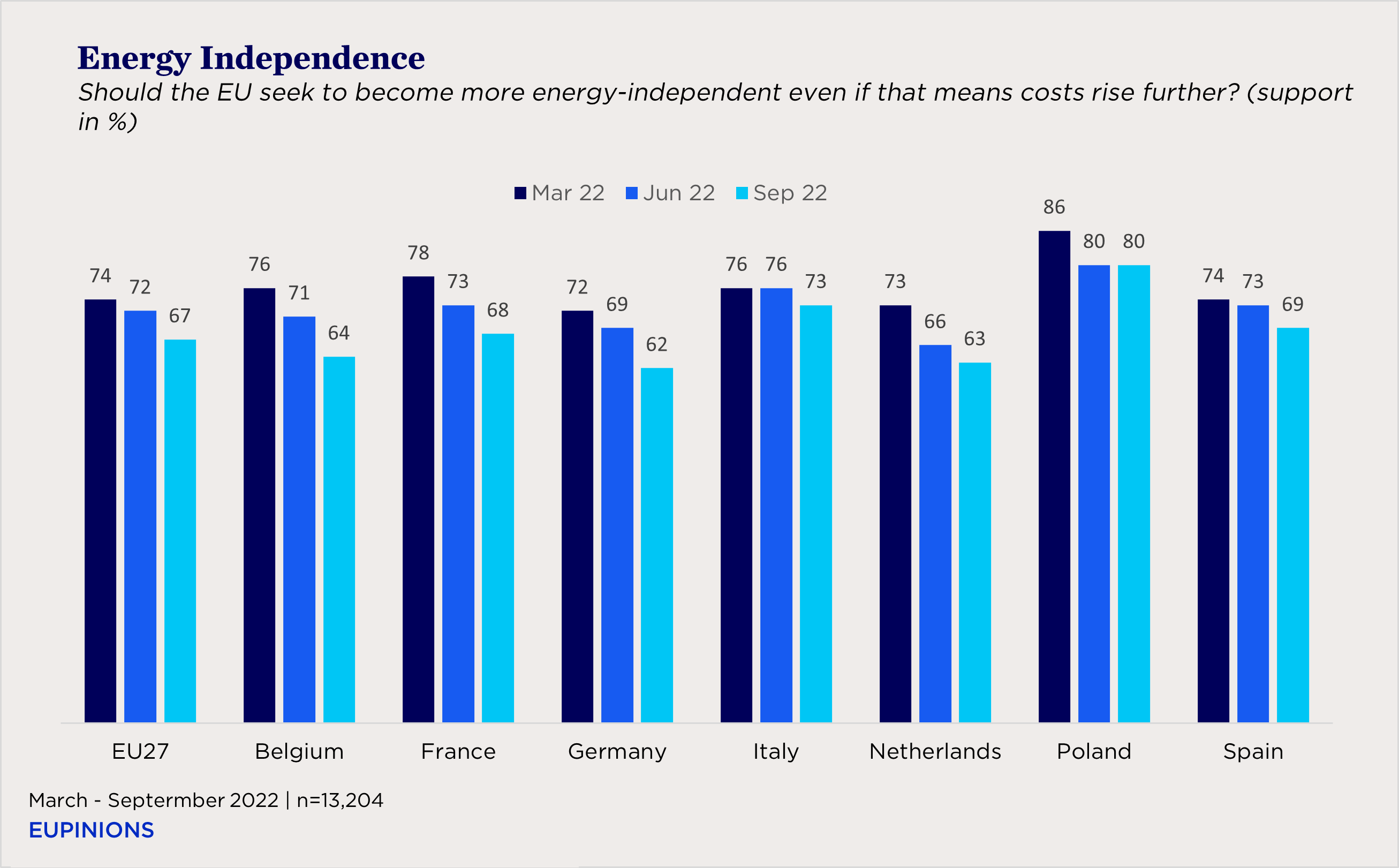
Green Energy
Many European countries have looked at expanding their green energy production as a substitute for Russian gas. An August 2022 European Investment Bank Climate Survey shows that two-thirds of the EU believe that the Russian invasion of Ukraine and its consequences on energy supply should accelerate Europe’s transition to green energy. This data is consistent with domestic polls conducted in France, Germany, and the Netherlands, where vast majorities view renewable energy in a very favorable light.
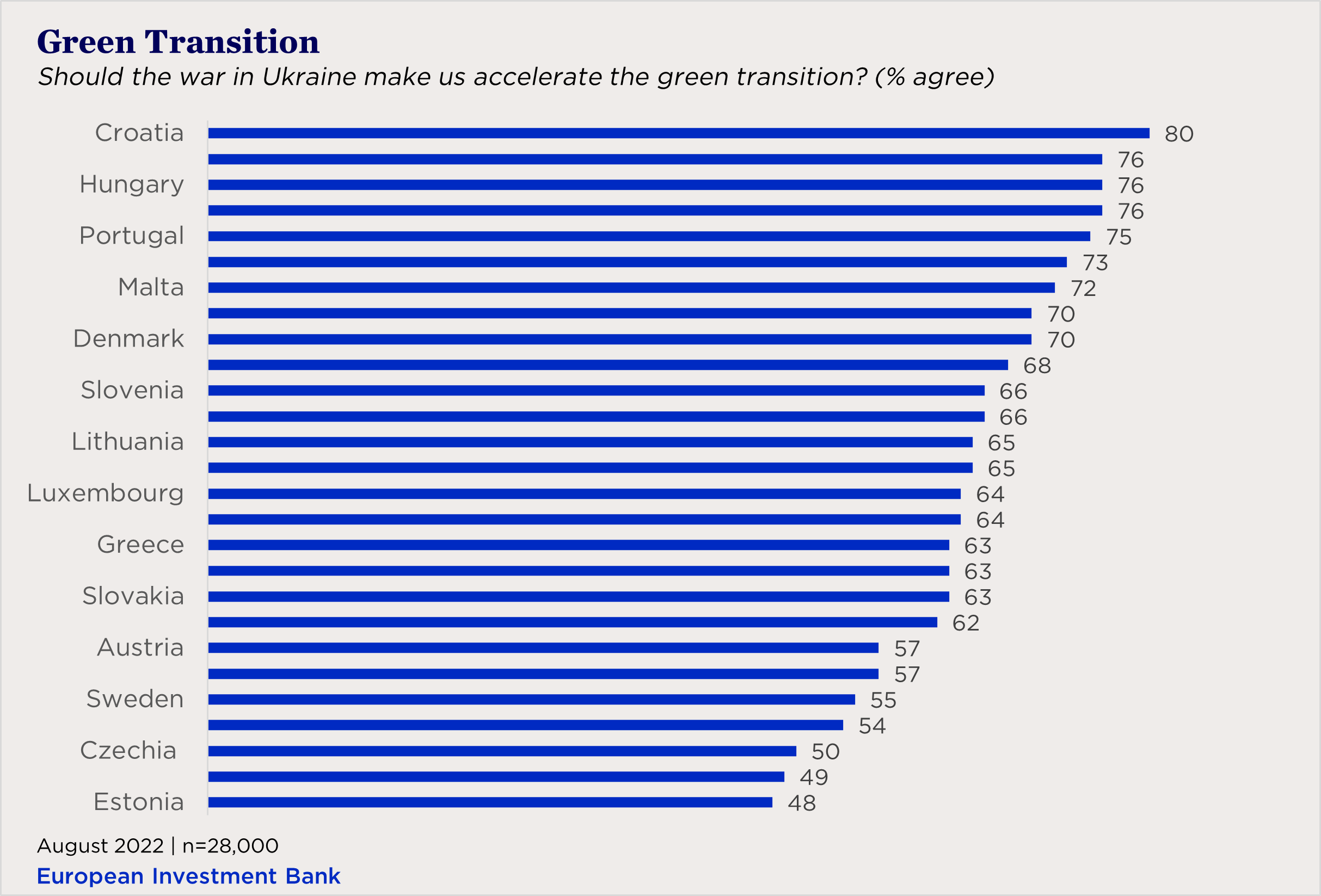
Attitudes on Nuclear Energy
When it comes to diversifying energy supplies, another central debate in Europe is over the role of nuclear energy. France and Germany are often cited as the opposite ends of this spectrum. France has long been a strong proponent of using atomic energy and derives 70 percent of its electricity from nuclear reactors. Thus, nuclear energy, alongside renewables, will be a key tool in France's quest to become more energy independent. An Elabe poll from November 2022 indicates that the appeal of nuclear power is growing in the eyes of the French public, with support for nuclear energy increasing to 78 percent from 73 percent in November 2021. Additionally, when asked about the qualities of nuclear energy, 78 percent selected that they view atomic power very favorably or favorably in its ability to guarantee energy independence for France.
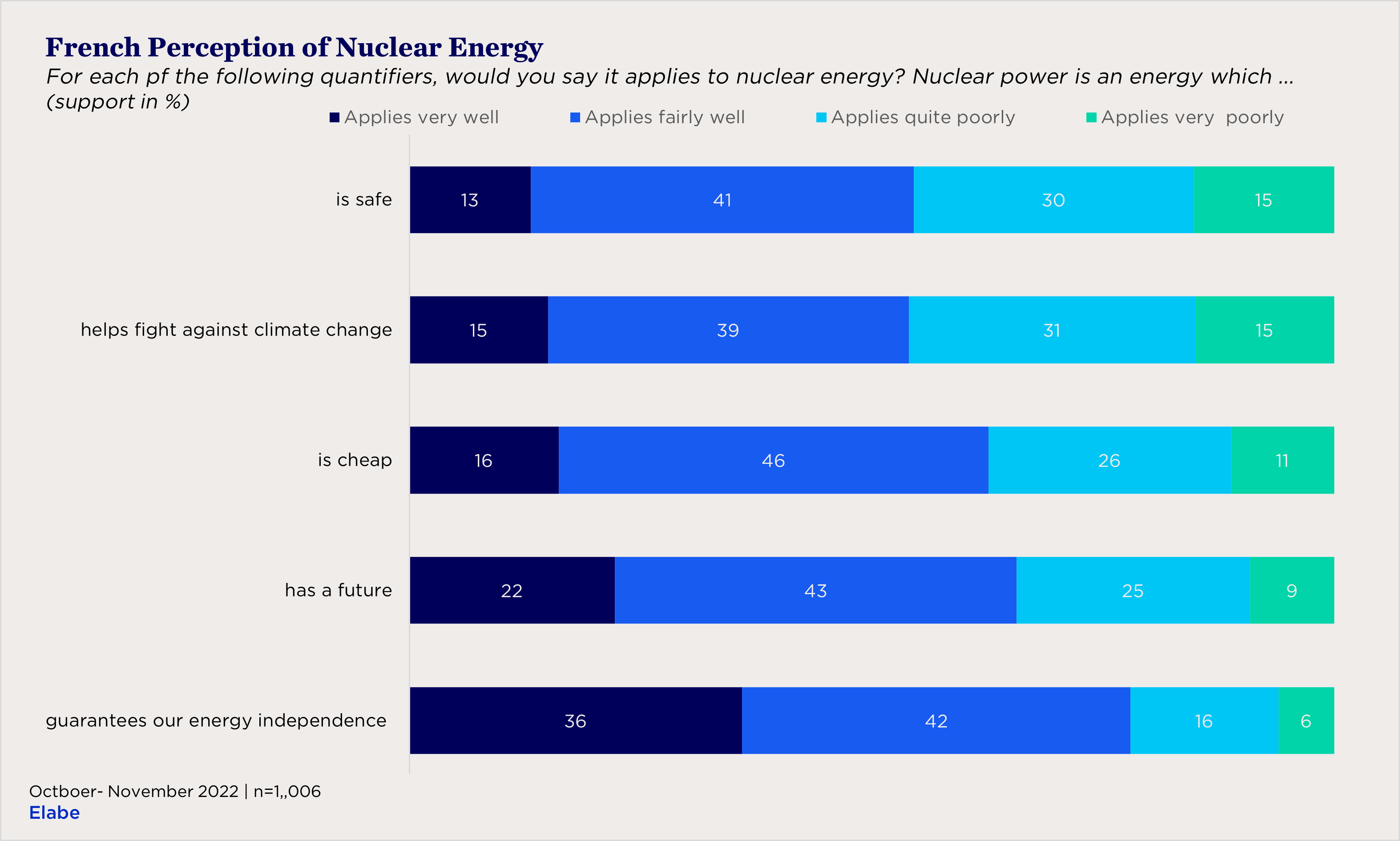
Germany, on the other hand, has a history of anti-nuclear sentiments and had planned to shut down all its remaining power plants by 2021. But in the last year, even Germans have been rethinking their stance on nuclear power. A poll conducted by ARD-Deutschland in August 2022 finds that 82 percent of Germans want to extend the use of the remaining reactors until the summer of 2023 instead of shutting them down by the end of 2022 as was originally planned.
While France and Germany serve as the two extremes in the European nuclear energy debate, many other European countries are also seeing revived debates over nuclear power. In Hungary, the public is divided over whether to focus on renewable energy (47% support) or expand nuclear energy use (24%). Similar debates over the viability of green energy and the role of nuclear power is likely to recur in other European countries seeking to transition out of fossil fuels. For example, Czechia’s government is expanding the Dukovany nuclear power plant, the French government plans to build six new nuclear reactors (spending €50 billion), and the United Kingdom has passed an Energy Security Bill that will boost nuclear energy.
Satisfaction with Government Actions
Governments across the EU have taken a variety of measures to curb the effects of rising energy prices. Bruegel's research shows that the most common policies have been reduced energy tax, transfers to vulnerable groups, and business support. In some countries, however, the public is not satisfied with their government's actions. For example, a November 2022 CBOS poll suggested that Poles have found state measures insufficient. Just over half of Poles (53%) evaluate the government's actions aimed at limiting rising electricity costs as rather bad or very bad, with a minority (32%) saying the government’s actions have been good.
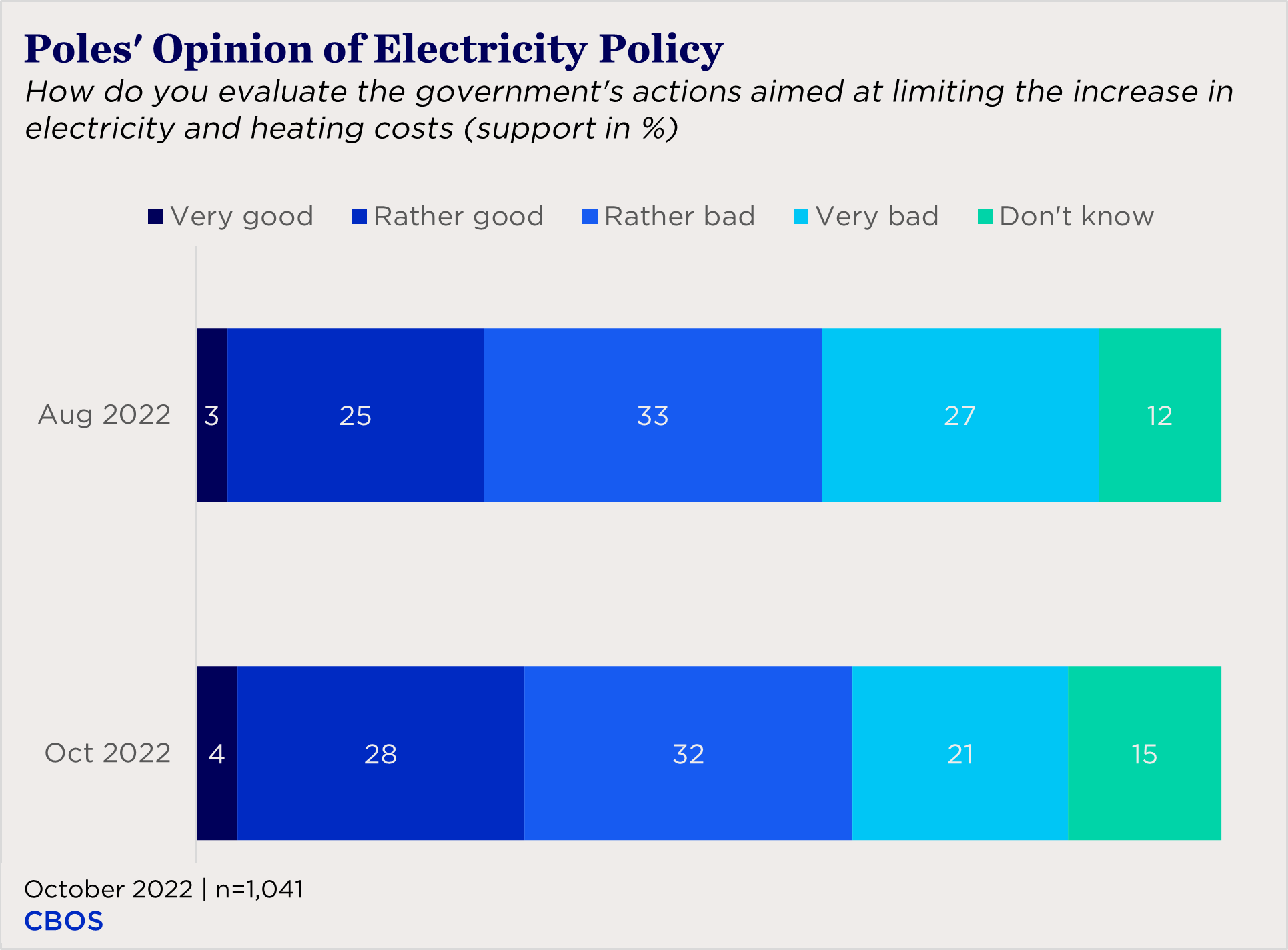
In some countries, people are so fed up with energy prices that they are considering boycotting their bills. Despite the government’s efforts to mitigate the effects of the energy crisis, the Don't Pay movement has gained traction in the United Kingdom. This grassroots movement was born out of people's inability to pay their energy bills and advises Brits to cancel their energy payments. Since mid-June, it has attracted over 130,000 supporters, and similar protests have spread to Italy, Belgium, and France. In September 2022, SWG, an Italian polling firm, found that 38 percent of Italians will be pleased if the Don't Pay movement or one with similar goals spread from UK to Italy, and 26 percent would be willing to personally take part in the movement if that were to happen. The popularity of such movements will depend on governments' responsiveness to public sentiment and people's satisfaction with measures to limit energy costs.
Conclusion
No matter what the outcome of the war in Ukraine might be, this conflict has reshaped the European energy landscape, and its effects will be felt for decades. Energy insecurity has pushed public opinion toward a demand for energy independence from Russia and the expansion of renewable energy. The positive shift in opinion toward nuclear power could be indicative of European’s fear of rising energy bills and willingness to achieve energy independence at any cost. It remains to be seen whether expanding oil markets in Qatar, Venezuela, and Nigeria could tempt Europe to choose the easier route of filling the gaps left by Russian gas with fossil fuels over renewables and nuclear power. For now, European leaders seem determined to invest in green energy and new nuclear plants.


Related Content
 Public Opinion
Public Opinion
Russia’s war in Ukraine has sparked a domestic push toward alternative energy sources.
 Tech and Science
Tech and Science
The European Union has bold goals to wean itself from Russian energy. Can it succeed?
 Tech and Science
Tech and Science
The public also remains concerned about the potential for a global economic downtown, Council polling shows.
